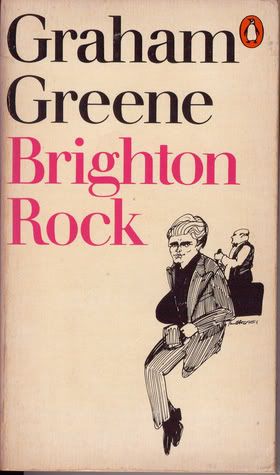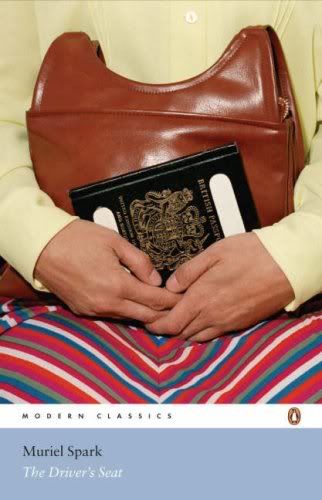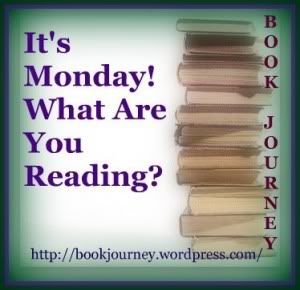"Once upon a time and a very good time it was there was a moocow coming down along the road and this moocow that was coming down along the road met a nicens little boy named baby tuckoo..."
This novel has left me utterly conflicted. On the one hand, it stands as one of the most challenging pieces of literature that I have ever read (there were certain sections where I felt the urge to pull my hair out by the roots) and yet, there are so many aspects to admire in this richly ambitious, complex work: the re-writing of Irish history, religious discourse, powerful imagery, the intricate structure and style of language that reflects Stephen Dedalus's state of mind as he matures in age, the clever use of irony, along with Joyce's striking ability to write some of the most beautiful epiphanies. It is no surprise that plenty of my favorite novels tend to revolve around the "coming-of-age" story or to get technical, the bildungsroman: narratives that depict the emotional and psychological development of a young protagonist entering adulthood--Catcher in the Rye, A Clockwork Orange, Harry Potter, Franny and Zooey to name a few-- and now I can add James Joyce's A Portrait of the Artist as a Young Man to that list. Unfortunately, I feel inadequate in my abilities to thoroughly analyze this complex novel and my review will only gloss a tiny portion of the surface. Hopefully I am successful in formulating some coherent thoughts that serve to confirm the greatness of one the most important novel's of the 20th century.
Before I proceed, let me just state outright that it will be detrimental to one's enjoyment or appreciation of the novel without having a general understanding of the historical context because otherwise, one is bound to be extremely confused. The Penguin edition does a great job of providing helpful footnotes. Considering much of the novel focuses heavily on Irish nationalism and Catholicism, having quick access to this information will be one less problem to overcome in order to better access this perplexing work. Not to mention, Joyce is fond of using Latin and making plenty of obscure references to classical works that may not be familiar.
Joyce begins his epic narrative by using the Icarus and Daedalus myth from Ovid's Metamorphoses as an overarching metaphor for the artistic journey of his young protagonist Stephen, whose last name clearly resembles the latter: "And he applies his mind to obscure arts." For those unfamiliar with the myth, Daedalus is the father of Icarus and designs a pair of wings to escape from the Cretan labyrinth that houses the vicious Minotaur. In a tragic turn of events, Icarus flies too close to the sun, melting his wings and he falls into the sea to his death. Connecting Stephen to the classical artist of Daedalus is just one of ways in which Joyce develops his protagonist's romantic conception of the aesthetic self who is free from the forces of the external world and can finally assert triumphant artistic expression as in the famous closing lines, to "forge in the smithy of my soul the uncreated conscious of my race" (276). Joyce is fond of using very selective and representative moments or more specifically, synecdoches to chronicle Stephen's transformation. The slice-of-life naturalism contrasts with Stephen's inner experience. Joyce lays down the conditions to be an artist in such a profound way through the use of language. Stephen's discovery of his artistic vocation; the ecstasy of standing outside himself as he soars like Deadalus into the unknown is inspiring as much as it is ambiguous as to whether or not he will achieve success. One could certainly make the argument that Stephen's rebellious actions and declaration that "I will not serve" is an allusion to Satan's pride, which let to "The Fall" found in Milton's Paradise Lost. Joyce sets up Stephen's martyr complex as ironic.
Joyce's narrative structure and use of language is worth examining more closely. Initially, it is difficult for the reader to get a clear sense of Stephen's character. As the novel progresses these hazy impressions become more vivid as Stephen matures himself. The subjective and objective world collide, causing the specific use of language to change. It is only at the end of the novel where Stephen finally rejects Irish conformity and the Catholic faith that he can emerge with his own voice instead of being a prisoner to the omniscient third-person narrator. A most clever literary technique effectively used by Joyce. Stephen is the focalizer and the novel charts the growth of his mind over a period of time. However, Joyce's use of free-indirect discourse complicates matters because Stephen is not always the verbalizer; placing an ironic distance between the objective narrator and the protagonist. Thus, the impersonal narration produces an extensive amount of ambiguity. Is Stephen an artifice trying to escape a labyrinth society? Are the epiphanies he experiences authentic or ironic? Is his theory of art an aesthetic gospel or just egotistical nonsense? Is the villanelle indicative of artistic genius or just pretentious drivel? Is the novel progressive or ironically cyclical where Stephen rises from the epiphany only to fall? Most importantly, is Stephen successful as an artist? The overwhelming contradictions and irony in the text makes it difficult to conclusively answer any of these questions. Perhaps it would help if Stephen was not ambiguously distant but with no authorial intrusion, the novel is confined only to his perspective.
Joyce is intent on complicating matters further by using a dialogical framework with different types of language: Childhood fragmentation, schoolboy slang, dramatic action of dialogue at the Christmas dinner over politics and religion, formal rhetoric of Jesuit sermon, elevated language of epiphany, intellectual colloquialism of college students, magical language of folklore, formal discourse of Stephen's aesthetic philosophy and ending with the fragmented diary entries. It's no surprise that many reader's find the novel intimidating and downright baffling to fully grasp. Believe me, I feel the same way too. This is not one of those novels to read on a whim. It demands a dedicated investment of time and effort on the part of the reader. I would be hard-pressed to recommend this novel to just anyone because it seems to be haughtily directed towards a specific type of intellectual audience. If one can get passed Joyce's ostentatious style, there is actually a great novel here. However, if you happen to like a challenge or just happen to be curious to see what all the hype is about, by all means, take the plunge. Just don't come back and say I didn't warn you.








